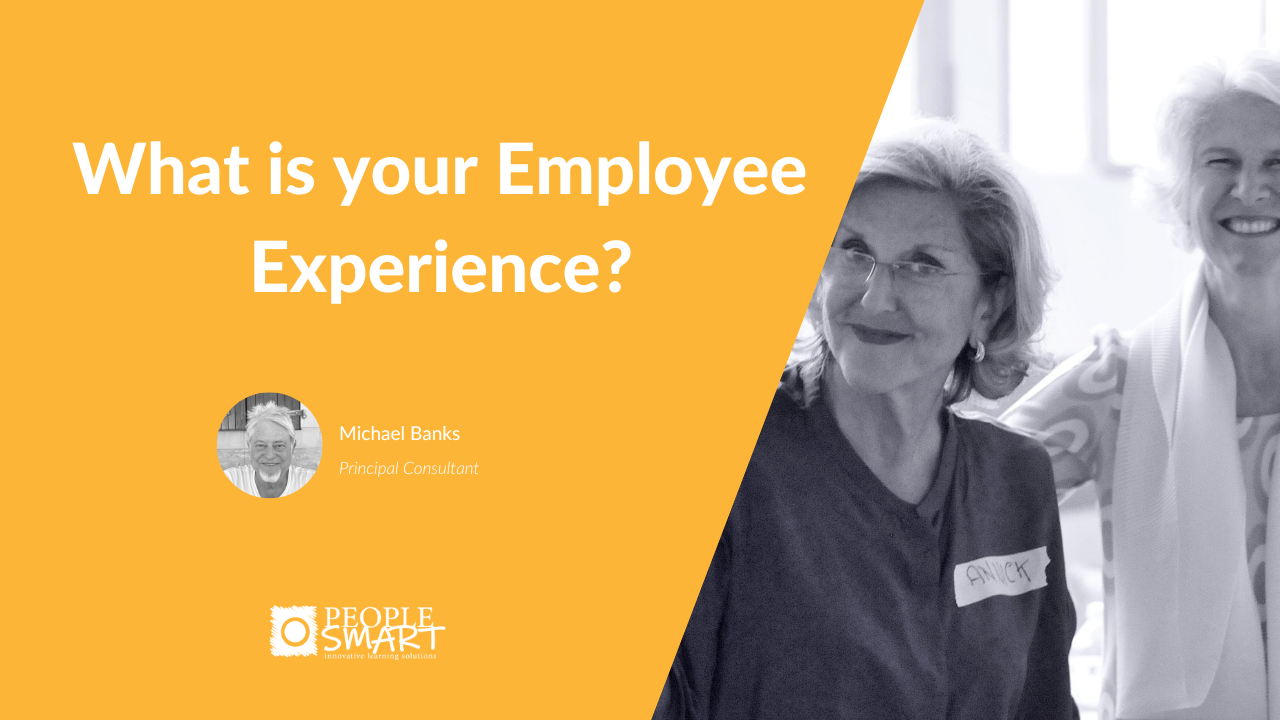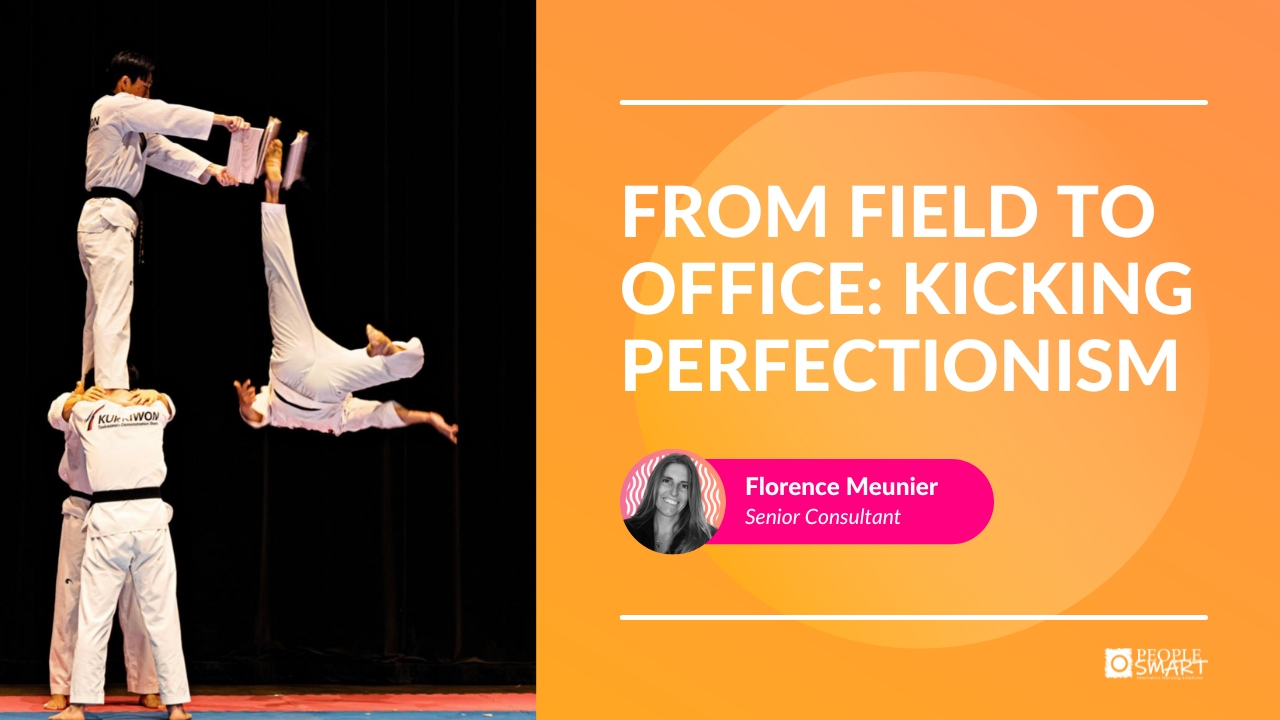Definitions of EXP (Employee Experience) vary widely. Here are two recent examples.
“Employee experience encapsulates what people encounter and observe over the course of their tenure at an organization.”
“Employee experience (or talent experience to be specific), creates the conditions that unlock high
employee engagement. It sculpts an employee’s perception of their day-to-day work environment, culture and sense of purpose, which in turn influences their level of engagement.”
Nowadays most companies are espousing the idea that a positive EXP leads to enhanced business
performance and for good reason. It does!
When organizations get employee experience right, they can achieve twice the customer satisfaction and innovation, and generate 25% higher profits than those that don’t. – Culture Amp
An analysis of over 250 global organizations found companies that scored highest on employee experience benchmarks have four times higher average profits, two times higher average revenues, and 40 percent lower turnover compared to those that didn’t. – Culture Amp
In this article, I am not going to talk about certain key elements of EXP like the importance of onboarding,
providing development opportunities and tech systems that facilitate the easy transfer of information.
Rather I will focus on my personal experience of what constitutes a great EXP. My belief is that you know
when it’s great or not primarily by how you feel.
There are simple ways to determine the level of positivity in an organization. What’s the ‘atmosphere’ like
when you walk into the main lobby? Is it flat and dull or is there an aliveness and buoyancy in the air? When you walk through the offices are people smiling? Are conversations animated? Are they having fun? Is work enjoyable?
XP is about how employees FEEL. How do you feel when you visit the office? Are you welcomed warmly?
Are you happy to be there? What are some of the key elements?
So how do you create the right conditions for a fantastic EXP? I remember the Chairman of a global finance company smiling and saying ‘hello’ in the elevator to anyone, regardless of rank. He would also descend from the top floor and drop in at random to chat with an employee halfway down the 50-storey building. He took a genuine interest in his people, included them, and made them feel good. Staff at this company felt connected and part of the enterprise.
I’m sure we’ve all had both good and bad employee experiences. Rather than continue to talk about third-party facts, stats, and perspectives I’d like to share a couple of personal stories that illustrate both exemplary and negative employee experiences. And I’d like you to consider your own EXP experiences.
What can you personally do to contribute to improving EXP in your organization?
Years ago in London, I was fortunate enough to join a pioneering group of idealists and grow a group of
companies that, for many, opened up new possibilities for creating the ideal work environment. In my book, the following elements are key to generating an engaging employee experience. An inspiring leader with an inspiring vision, a psychologically safe workplace, with its cousin a ‘feedback culture’, trust, and fun! It felt great to be part of a community. And what excited me was the fact that we were always expanding and not contracting.
Our vision was no less than the transformation of society through business. The fun element was in
particular an example of a joyous EXP. We staged costume parties and banged a large Tibetan gong to
herald the start of the day’s work and then straight after lunch. Perhaps the most outrageous fun adventure was, for three consecutive years, chartering jets, closing the companies and flying off to Morocco, Turkey, and Egypt with staff, friends, and family.
But while this may sound rather idyllic, two aspects of EXP I listed above prevented this experience from
being stellar. In fact, they put a dampener on what could have been exceptional. Unfortunately large, over-controlling egos created an environment where many were afraid to speak out and express themselves freely.
In 1999, the highly esteemed Professor Amy Edmondson coined the term “psychological safety” to describe the lack of interpersonal fear. It’s about creating a space where people feel comfortable being
themselves—where they can express themselves honestly, and make mistakes without fear of being
shamed or blamed. Ironically that charismatic leader with an inspiring vision set the tone and did nothing to dispel the internal politics and tensions that arose. When it came to psychological safety and trust there was much to be desired. Most people were scared or in awe of the Chairman and his close lieutenants.
In a company where psychological safety is a reality, it is possible to create a culture of feedback. Trust and comfort are there to facilitate timely and constructive interpersonal feedback. If only everyone in that
company in London had a ‘voice’, as Amy Donaldson puts it, it might have been possible to largely eradicate the fear of taking interpersonal risks. Things can change if, as they say, you speak ‘truth to power.’
Finally, perhaps the number one determinant of EXP is the relationship between the employee and his/her immediate manager. In my case, I reported to a Managing Director who kept me at a distance and was very cold towards me. Needless to say, I always felt uncomfortable, tense, and inauthentic around her.
This went on for two years. If FEELING is an excellent indicator of EXP then I felt bad in her presence throughout this period. Interesting that a few years later she apologized for her behavior.
Needless to say, during this period, my performance suffered as my energy was suppressed and my
contribution to the team effort diminished dramatically. A leader’s job is to minimize fear and instill
confidence in her team. Interestingly my manager had a great relationship with a colleague of mine and he flourished under her leadership producing great results. This case is an example of how, early on, an open and honest exchange of feedback would likely have completely changed the dynamic of our relationship and enabled me to bring my whole self to the workplace.
Every organization should create its own culture and EXP according to its nature and circumstances. Not
many companies are willing or able to fly their staff to some exotic holiday location! But how we behave
towards others will largely determine the quality of the employee experience. And that’s a universal truth.
Michael Banks
February 2023
.
.
.
.
.
If you want to know more about PeopleSmart and the services we offer reach out to us for a conversation:
contact@peoplesmart.fr






